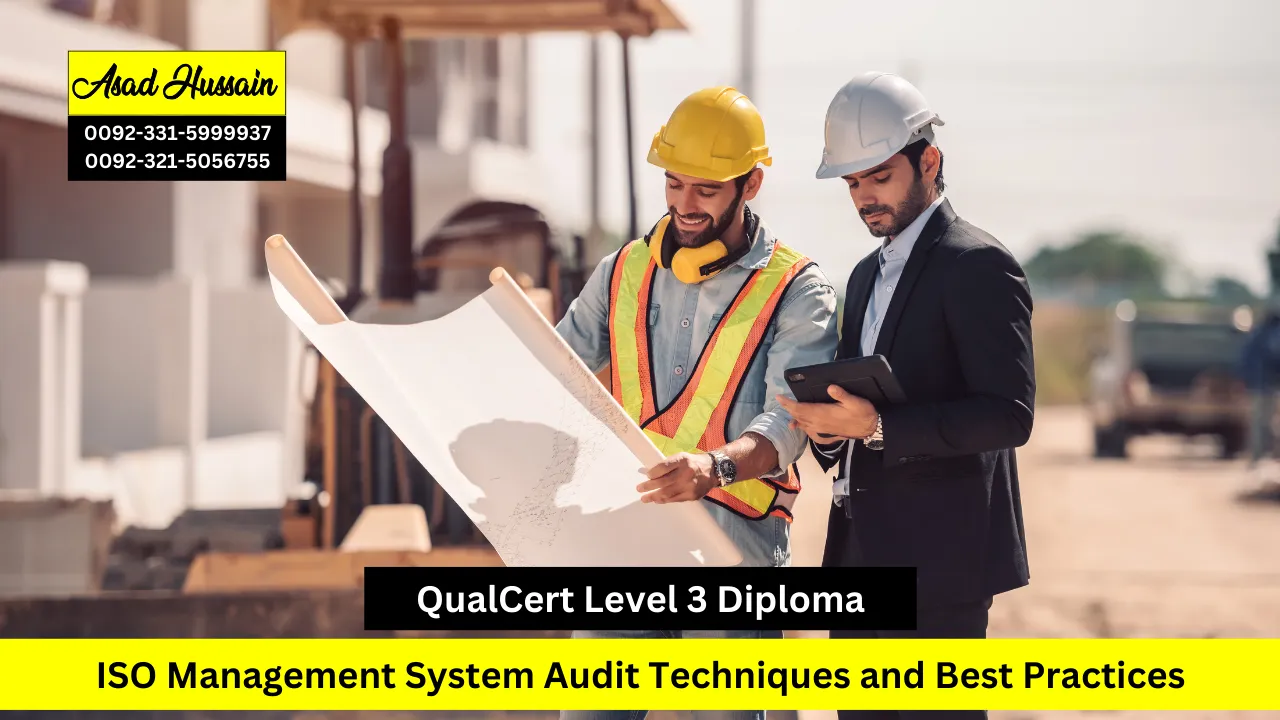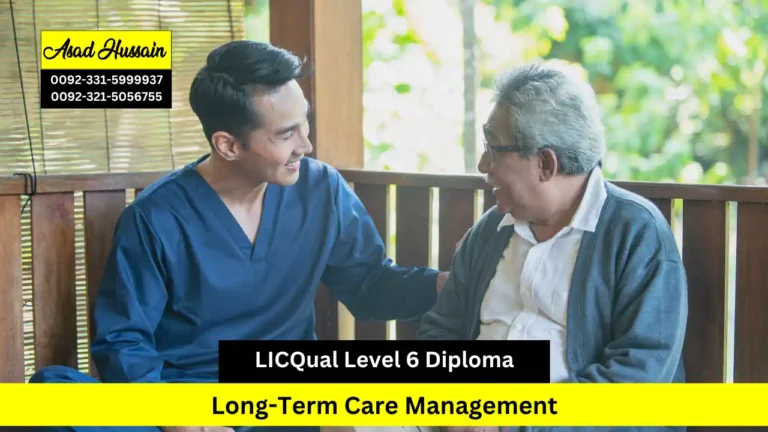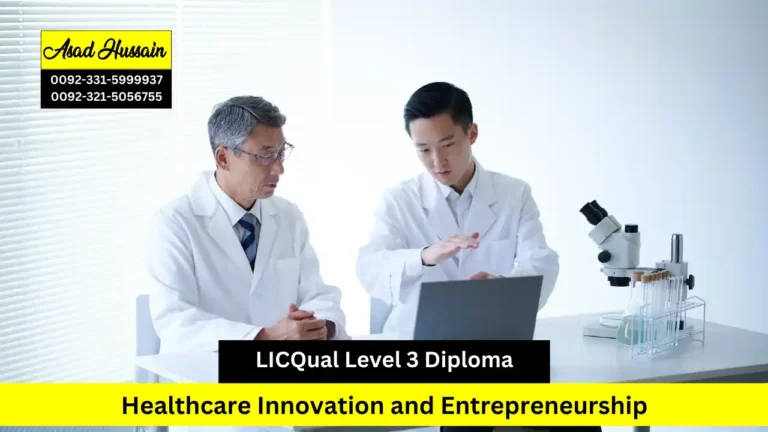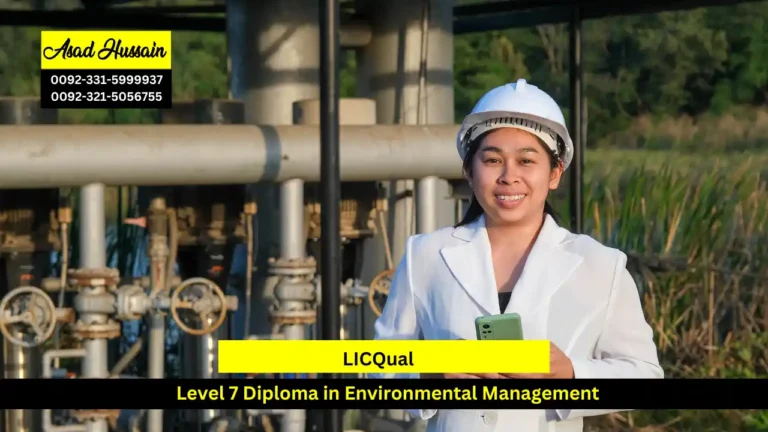In today’s competitive global market, organizations across all sectors are required to maintain internationally recognized standards for quality, safety, and efficiency. ISO management systems play a crucial role in ensuring compliance, risk reduction, and operational excellence. The QualCert Level 3 Diploma in ISO Management System Audit Techniques and Best Practices is designed to equip learners with the knowledge and skills to perform effective audits, identify gaps, and drive continual improvement within organizations.
QualCert Level 3 Diploma in ISO Management System Audit Techniques and Best Practices provides a strong foundation in ISO audit methodologies, compliance frameworks, and best practices. Learners will gain practical expertise in planning, conducting, and reporting audits aligned with international standards such as ISO 9001, ISO 14001, and ISO 45001. The QualCert Level 3 Diploma in ISO Management System Audit Techniques and Best Practices emphasizes both technical auditing techniques and the soft skills needed to engage stakeholders, manage non-conformities, and ensure corrective actions are implemented effectively.
By enrolling in QualCert Level 3 Diploma in ISO Management System Audit Techniques and Best Practices, learners will develop competencies in audit planning, risk assessment, evidence collection, and performance evaluation. They will also learn to align auditing processes with organizational goals and industry requirements, ensuring that audits contribute to overall business improvement rather than simple compliance.
Upon completion, graduates of QualCert Level 3 Diploma in ISO Management System Audit Techniques and Best Practices will be prepared for careers as internal auditors, quality assurance professionals, compliance officers, or ISO consultants, with opportunities to progress to higher-level qualifications. This internationally recognized certification ensures that learners can contribute to building trust, accountability, and sustainability within organizations worldwide.
Program Highlights
Mandatory Units
- Advanced Understanding of Integrated ISO Management Systems
- Comprehensive Audit Planning and Strategic Risk Assessment
- Leading and Managing Audit Teams Effectively
- In-Depth Audit Execution, Interviewing, and Observation Techniques
- High-Impact Audit Reporting, Root Cause Analysis, and CAPA Strategies
- Professional Auditor Ethics, Leadership, and Continuous Improvement
To ensure learners are well-prepared for this professional program, the following entry requirements apply:
Age Requirements
- Applicants must be at least 16 years of age at the time of enrollment.
- Learners of any age above the minimum requirement are encouraged to apply, particularly those seeking career advancement or professional development.
Educational Requirements
- Completion of secondary education or an equivalent qualification is required.
- A background in business, management, administration, or technical subjects is advantageous.
- Relevant vocational or professional certifications in quality management or auditing may be considered.
Professional Experience
- No prior professional experience is mandatory, but relevant work in auditing, quality assurance, compliance, or management systems is advantageous.
- Applicants currently employed in quality or compliance roles can directly apply practical learning to their work.
English Language Proficiency
- For non-native English speakers, a basic to intermediate level of English is required.
- Effective communication skills are critical for interacting with stakeholders during audits.
The QualCert Level 3 Diploma in ISO Management System Audit Techniques and Best Practices equips learners with the essential knowledge, technical skills, and practical expertise to perform effective audits across organizations. Upon completion, students will be able to apply international standards, lead audit processes, and drive continuous improvement in compliance and operational excellence.
Advanced Understanding of Integrated ISO Management Systems
- Demonstrate a thorough knowledge of ISO standards including ISO 9001, ISO 14001, and ISO 45001.
- Understand the integration of multiple management systems for quality, environmental, and occupational health & safety compliance.
- Analyze organizational processes to identify areas of alignment and gaps with ISO standards.
- Apply theoretical knowledge to assess system effectiveness and regulatory compliance.
Comprehensive Audit Planning and Strategic Risk Assessment
- Develop detailed audit plans that include scope, objectives, and resource allocation.
- Identify, evaluate, and prioritize risks that may impact audit outcomes and organizational compliance.
- Apply risk-based thinking to ensure audits focus on critical processes and high-impact areas.
- Schedule and prepare audit activities efficiently to optimize time and resources.
Leading and Managing Audit Teams Effectively
- Coordinate audit team activities to ensure clarity in roles, responsibilities, and communication.
- Foster collaboration and problem-solving within audit teams.
- Apply leadership skills to guide team members through audit challenges.
- Ensure team adherence to international auditing standards and best practices.
In-Depth Audit Execution, Interviewing, and Observation Techniques
- Conduct effective on-site audits using systematic observation and structured interviewing methods.
- Gather and evaluate objective evidence to determine compliance levels.
- Apply critical thinking to assess process effectiveness and identify non-conformities.
- Utilize professional techniques to interact with stakeholders and maintain audit integrity.
High-Impact Audit Reporting, Root Cause Analysis, and CAPA Strategies
- Prepare clear, concise, and actionable audit reports tailored to organizational needs.
- Perform root cause analysis to identify the underlying reasons for non-conformities.
- Recommend corrective and preventive actions (CAPA) to enhance system effectiveness.
- Communicate audit findings to management in a professional and impactful manner.
Professional Auditor Ethics, Leadership, and Continuous Improvement
- Demonstrate ethical behavior, impartiality, and integrity throughout the audit process.
- Apply principles of professional responsibility and accountability in audits.
- Promote continuous improvement by recommending process enhancements and efficiency measures.
- Maintain ongoing professional development and stay updated on ISO standards and auditing best practices.
Conclusion
Upon completing the QualCert Level 3 Diploma in ISO Management System Audit Techniques and Best Practices, learners will have the expertise to conduct thorough audits, manage teams effectively, and ensure compliance with international ISO standards. Graduates will be prepared for roles such as internal auditors, quality assurance officers, compliance managers, or ISO consultants, contributing to organizational efficiency, accountability, and continuous improvement on a global scale.
The QualCert Level 3 Diploma in ISO Management System Audit Techniques and Best Practices is designed for individuals who aim to enhance their knowledge and expertise in auditing, quality management, and organizational compliance. This program caters to a broad spectrum of learners, including professionals, students, and industry practitioners seeking to develop practical auditing skills, understand ISO standards, and contribute to operational excellence in their organizations.
Educational Instructors and Trainers
- Enhance teaching methodologies by integrating ISO auditing principles into vocational or academic programs.
- Provide real-world examples of audit planning, execution, and reporting to learners.
- Stay updated on international standards and best practices to improve curriculum relevance.
- Develop professional credibility and authority in teaching quality and compliance subjects.
- Support students or trainees in applying theoretical knowledge to practical auditing scenarios.
Environmental Advocates and Activists
- Understand ISO 14001 environmental management systems and their implementation.
- Identify sustainable practices and assess organizational compliance with environmental regulations.
- Promote eco-friendly initiatives within businesses and industries.
- Evaluate the effectiveness of environmental policies using audit evidence.
- Encourage organizations to adopt continuous improvement strategies for environmental sustainability.
Research and Development Teams
- Gain insights into auditing standards to ensure R&D processes comply with regulatory requirements.
- Apply audit techniques to evaluate project efficiency, safety, and quality.
- Identify process improvements through root cause analysis and corrective actions.
- Collaborate with cross-functional teams to maintain compliance in innovative projects.
- Document findings to support evidence-based decision-making and process optimization.
Corporate Social Responsibility (CSR) Professionals
- Assess organizational adherence to quality, safety, and environmental management standards.
- Integrate ISO auditing knowledge to measure and improve CSR initiatives.
- Enhance reporting accuracy and transparency to stakeholders.
- Recommend improvements to enhance social, environmental, and governance performance.
- Support strategic planning to align CSR efforts with global compliance requirements.
Students and Recent Graduates
- Build a strong foundation in ISO auditing principles and management system standards.
- Acquire practical, hands-on experience in audit planning, execution, and reporting.
- Enhance employability in roles such as internal auditors, compliance officers, or quality assurance assistants.
- Develop transferable skills in leadership, communication, and problem-solving.
- Prepare for progression to higher-level ISO auditing qualifications.
Career Changers
- Transition into quality, compliance, or auditing roles with a recognized qualification.
- Gain essential auditing knowledge without prior experience in ISO standards.
- Develop technical and professional skills to meet industry expectations.
- Explore new career paths in auditing, quality assurance, and compliance.
- Leverage practical learning to secure entry-level or mid-level professional opportunities.
Policy Makers and Regulators
- Understand ISO standards to guide the development of policies and regulations.
- Evaluate compliance and risk management within organizations.
- Apply auditing insights to improve regulatory oversight and enforcement strategies.
- Promote best practices and continuous improvement across industries.
- Ensure alignment of organizational processes with national and international standards.
The QualCert Level 3 Diploma in ISO Management System Audit Techniques and Best Practices is suitable for a wide range of learners, from students and career changers to industry professionals and regulators. By developing practical auditing skills, understanding ISO standards, and fostering a commitment to compliance and continuous improvement, this course empowers learners to advance their careers and make meaningful contributions to organizational excellence.







